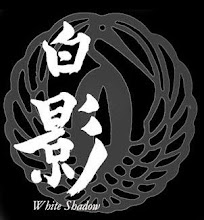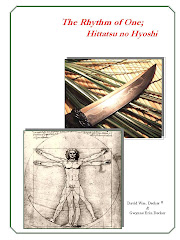"Be Like a Wooden Puppet"
How many times do you feel that a technique must work successfully before you can consider yourself an adept? Yagyu Munenori had a number of things to say about this in the family book of strategy called the Heiho Kaden sho.
“No matter what you do, if you do it single-mindedly, trying to control your mind correctly and not allowing it to be distracted (unfocused[1]), you will end up becoming muddle-headed. You do something right once, so you think you are good enough; but then you do it wrong. You do it right twice and wrong once, so you may be pleased that you have reached a point where you do something right two out of three times; but then you do it wrong twice in a row and find everything confusing. All this is because you are determined to do something well.”

This is a part of the learning curve in most endeavors. If the subject is history or grammar the consequences of errors can be minimal. If your study involves an empty hand martial art, mistakes could get you seriously injured. Mistakes involving a weapon such as a knife, sword, or staff may be terminal. So paying attention is important. But isn’t Munenori saying that too much attention may actually be detrimental?
The Yagyu clan was famous throughout Japan for their muto dori (no-sword) techniques. In fact it was a demonstration of these moves that eventually gained them the honor of sword instructor to the Tokugawa Shoguns. Despite this, Hiroaki Sato states that “after working hard at the art of no sword he (Yagyu Muneyoshi) reached a stage where, without a sword, he could defeat ‘six or seven out of ten armed men,’ or defeat one armed man ‘six or seven out of ten times[2].’”
This admission comes from one of the most skilled exponents of muto in all of Japan. Was Muneyoshi satisfied with that percentage? I doubt it. After all, that means that in actual combat he would be killed 3 to 4 times out of ten encounters. Getting killed more than once is sure to be discouraging. So, this suggests that there is no end to training, no such thing as good enough, that muto dori is not infallible, and a 60 % success rate is not acceptable in single combat.
Munenori writes that you must train diligently until you become like a wooden puppet.
[1] my addition
[2] The Sword and the Mind Hiroaki Sato pg.100 footnotes






No comments:
Post a Comment